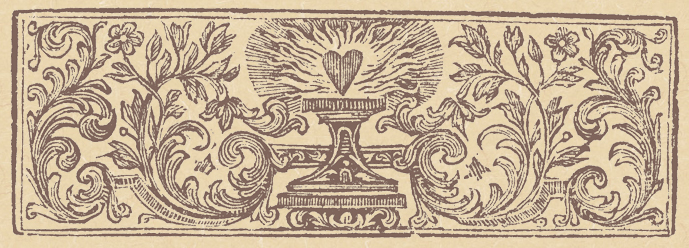We're All in the Same Boat.
The Thirteenth Sunday of Ordinary Time.
Lessons from the primary dominica, according to the ordinary form of the Roman Rite:
• II Kings 4: 8-11, 14-16.
• Psalm 89: 2-3, 16-19.
• Romans 6: 3-4, 8-11.
• Matthew 10: 37-42.
The Fourth Sunday after Pentecost; and, the Commemoration of the Visitation of the Blessed Virgin Mary.*
Lessons from the dominica, according to the extraordinary form of the Roman Rite:
• Romans 8: 18-23.
• Psalm 78: 9-10.
• Luke 5: 1-11.
The Fourth Sunday after Pentecost; and, the Feast of the Deposition of the Venerable Robes of the Theotokos at Blachernæ.
First & third lessons from the pentecostarion, second & third from the menaion, according to the Ruthenian recension of the Byzantine Rite:
• Romans 6: 18-23.
• Hebrews 9: 1-7.
• Matthew 8: 5-13.
• Luke 10: 38-42; 11: 27-28.
FatherVenditti.com
|
 8:46 AM 7/2/2017 — It’s the prophets of the Old Testament that furnish the link between our first lesson from Second Kings and our Gospel lesson from Matthew. In the first, the Holy Prophet Elisha is welcomed into the home of a wealthy woman, and reciprocates by promising that she will give birth to the son she always wanted; and, in the Gospel lesson Our Lord, without mentioning it explicitly, cites the example: “Whoever receives a prophet because he is a prophet will receive a prophet’s reward” (10: 41 RM3). 8:46 AM 7/2/2017 — It’s the prophets of the Old Testament that furnish the link between our first lesson from Second Kings and our Gospel lesson from Matthew. In the first, the Holy Prophet Elisha is welcomed into the home of a wealthy woman, and reciprocates by promising that she will give birth to the son she always wanted; and, in the Gospel lesson Our Lord, without mentioning it explicitly, cites the example: “Whoever receives a prophet because he is a prophet will receive a prophet’s reward” (10: 41 RM3).
I mention that esoteric point only because most of us will probably ignore it after we hear the rest of Our Lord’s discourse to His disciples, because it is so alarming to us: “He is not worthy of me, that loves father or mother more; he is not worthy of me, that loves son or daughter more…” (10: 37 Knox). I read it in Msgr. Knox’s translation because it’s delivered with so much more impact.
For most of us here—at least most of those whom I count as friends—very little is more important than family. In fact, for most people of faith, concentration on family is part of their faith, and it’s faith that forms the basis of unity within the family. What, then, is Our Lord talking about when He suggests, as He seems to here, that family can get in the way of faith?
In all my years of hearing confessions, those I find the most edifying are those in which someone confesses that they have failed to put God first in their lives. I can only assume that these confessions are motivated by some spiritual reading they are doing, or some sort of direction or preaching by someone better than me. Of course, it’s the sort of thing you hear only from someone who confesses frequently—once a week or once every couple of weeks—and it reflects a high degree of commitment to spiritual perfection. For those not so advanced in the interior life, it’s a puzzle: Isn’t the family the cell of the Church? Aren’t my duties to my family part of my obligation to Christ and His Church? The answer, of course, is “Yes,” but eschews the more mystical element being expounded upon by Our Lord, which is easily misunderstood by those whose knowledge of—and practice of—the Catholic Faith is very elemental.
It’s only July, but for the fifth time this summer I will repeat the line that has, without intending it, become the theme of my preaching to you this season: “Our one purpose for being on this earth is to work out our salvation. Everything else just window-dressing.”  And I’m not naïve. I know we come here with all sorts of problems, myself included, and it's hard to focus on eternal realities when we're depressed or trapped in a bad situation or worried about whether we can pay the bills. If that doesn't describe you, then I envy you, and so do a lot of other people here. And yet, I’m still able to stand here and say: “Our one purpose on earth is to work out our salvation. Everything else is just window-dressing.” And I’m not naïve. I know we come here with all sorts of problems, myself included, and it's hard to focus on eternal realities when we're depressed or trapped in a bad situation or worried about whether we can pay the bills. If that doesn't describe you, then I envy you, and so do a lot of other people here. And yet, I’m still able to stand here and say: “Our one purpose on earth is to work out our salvation. Everything else is just window-dressing.”
This is, of course, all an exercise in the sin of pride, as I don't exactly radiate an aura of cheerful abandonment, as you know. I’m just some poor slob who happens to have been accidentally ordained to the Holy Priesthood in a confusing time thirty years ago when no one was looking. That being said, those of us who are “normal,” who aren’t members of the elite, who are struggling, day by day, to find a way to keep our heads above water in difficult times, need to find some way to process what Our Lord tells us today. When He says that we mustn’t love our families more than Him, what He means is that we should recognize that life on this earth is nothing more than a waiting room. Life in this world is a drop of water in the ocean compared to eternity, and it’s eternity that is our true home. He’s not suggesting that we should estrange ourselves from our families and give ourselves over to divine mystical union with Him to the exclusion of everything else. He’s only reminding us that this world and it’s concerns—personal, familial, ecclesial, whatever—are mostly just a distraction from what really matters: keeping ourselves right with God. And we do that by confessing our sins frequently, drawing strength from the Grace of the sacraments,—particularly the Most Holy Eucharist—and not allowing ourselves to be distracted by popular or social concerns. Our one purpose for being on this earth is to work out our salvation. Everything else is just window-dressing.
The interior life is like a fingerprint or a snowflake: no two paths are the same. My journey is nothing like yours, and yours is nothing like the person's sitting next to you. That’s okay. We don’t need to be the same. What we need is Grace, and the ability to look each other in the face and say, “I understand. We’re all in the same boat, and I’m here for you.”

* The commemoration is made by an additional Collect, Secret and Postcommunion added to those of the Sunday.
|

